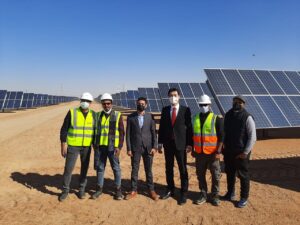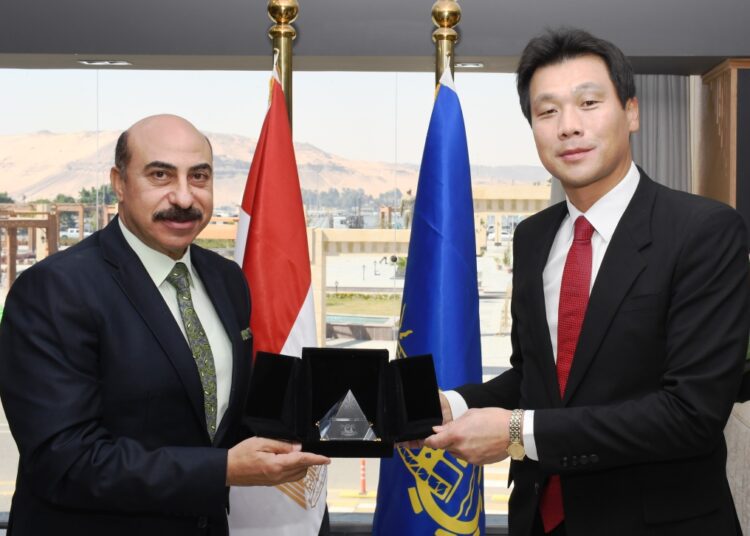South Korea’s Ambassador was on a two-day visit to Aswan Governorate to explore opportunities for co-operation with Egypt’s national development.
Ambassador of the Republic of Korea to Egypt Hong Jin Wook, who wrapped up his visit to Aswan Governorate yesterday, met with Aswan Governor Ashraf Attia Abdel Bari for talks on co-operation in energy, transport, education and culture.
During his meeting, Ambassador Hong emphasised his country’s willingness to support the presidential rural development initiative ‘Decent Life’.
Ambassador Hong noted that the Korean government’s decision to choose Egypt as a priority partner for development assistance for the period 2021-2025 gives an opportunity to increase co-operation in Aswan Governorate.
The envoy described the signing of a $30 million railway modernisation project between Luxor and the High Dam during the visit of South Korea’s President Moon Jae-in to Egypt in January as a “good starting point”.
The railway project will prove an invaluable link between Aswan and other governorates, revive tourism, and improve living standards in the governorate, the envoy said.
Ambassador Hong voiced his hope for further co-operation with Aswan Governorate in green industries and referred to the Egyptian-Korean round table on the future of green industries last month January in the presence of Egyptian Prime Minister Mostafa Madbouly and Korean President Moon Jae-in.

The ambassador and the governor agreed to cooperate in new and renewable energy projects.
One of the world’s largest solar power plants is in Benban, Aswan and there is a growing interest in this field as Egypt is hosting the COP27 climate conference in November this year.
The “environment and energy” are the bases of Korea’s future cooperation with Egypt, the envoy said, adding that he expects more opportunities for co-operation in the green transformation.
Ambassador pointed to the possibility of joint projects with the governorate, benefiting from $1 billion finance from the Korean Economic Development Cooperation Fund.
The agreement to this effect was concluded during Korean president’s visit to Egypt last month.
Renewable energy projects are to receive funding of $600 million from the Export-Import Bank Korea in cooperation with the African Development Bank.
For his part, Abdel Bari said he hoped to expand co-operation with Korea in education through the Korean Language Department at Aswan University, as well as cooperation in the energy and infrastructure sectors.
Many Korean companies are looking forward to entering the Egyptian market and consider Egypt an attractive investment destination, the envoy said, adding that this will lead to an increase in the number of Egyptians interested in learning the Korean language.
Ambassador Hong pledged continued support for the Korean Department at Aswan University by sending volunteers from the Korea International Cooperation Agency (KOICA).
“Mutual understanding and people to people exchange views are the bases for bilateral relations,” Hong said.
As for co-operation between Korea and Aswan Governorate in cultural heritage, the ambassador said a memorandum of understanding MoU was recently signed between the Cultural Heritage Administration of Korea and the Supreme Council of Antiquities in Egypt, which covers co-operation in the restoration and development of antiquities.
Projects of this kind will enable the governorate to benefit from Korea’s advanced technology in restoration and conservation of Aswan’s cultural heritage.
After the meeting, Ambassador Hong visited the Benban Power Plant and the High Dam in Aswan.
The envoy hailed the efforts by the Egyptian government to maximise the use of its resources for renewable energy.






Discussion about this post